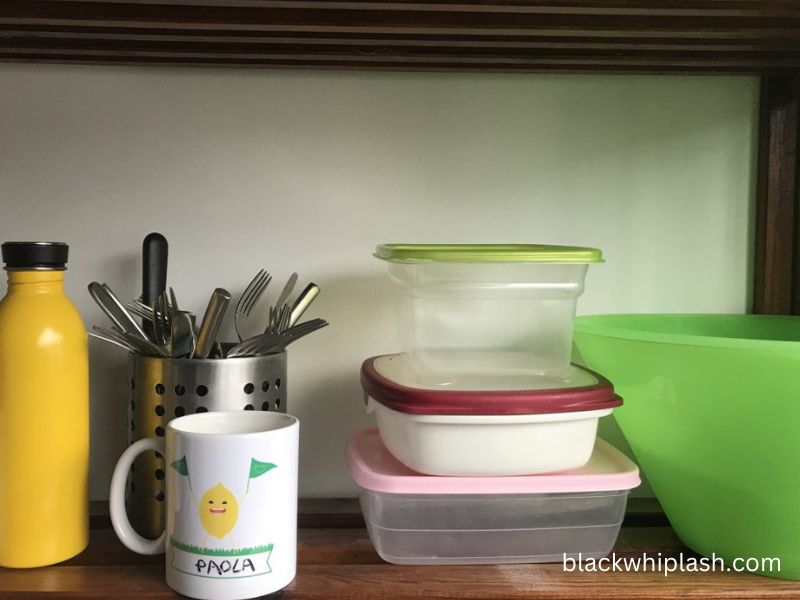In today’s world, sustainability is more important than ever. As individuals and businesses strive to reduce their environmental impact, one concept that has gained widespread attention is the zero-waste lifestyle. Among the various strategies to adopt a zero-waste approach, the “zéro déchet Lemon Tri” method stands out as an efficient, eco-friendly solution for managing waste. This article explores the top five zero-waste actions you can take with Lemon Tri, helping you transition to a more sustainable life while promoting a cleaner, greener future.
What is Zero Waste and Why is it Important?
Zero waste refers to the philosophy of minimizing waste production by reducing, reusing, and recycling materials instead of disposing of them in landfills or incinerators. This lifestyle encourages individuals, organizations, and communities to rethink the way they consume products, aiming to ensure that all products can be reused or recycled in a way that prevents environmental harm.
The importance of a zero-waste approach cannot be overstated. Waste management plays a crucial role in protecting the environment, reducing pollution, and conserving resources. A zero-waste lifestyle not only helps reduce landfill waste but also promotes responsible consumption and sustainable living practices.
What is zéro déchet lemon tri and How Does It Contribute to Zero Waste?
Lemon Tri is a French-based company that has become a key player in the zero-waste movement. They provide innovative and practical waste management solutions for both individuals and businesses. Their services are designed to simplify waste sorting and encourage recycling, making it easier for people to adopt zero-waste practices in their daily lives.
Lemon Tri operates by offering a comprehensive waste sorting system, collecting recyclable materials like plastic, paper, metal, and glass, and ensuring they are processed appropriately. Their approach also promotes the idea of reducing consumption and reusing items, which are essential principles in the zero-waste lifestyle.
Five Key Zero Waste Actions with Lemon Tri
Now that we understand the importance of a zero-waste approach and the role Lemon Tri plays, let’s explore five actionable steps to incorporate into your daily routine. These actions are simple, yet effective ways to reduce waste and contribute to a cleaner environment.
1. Implement a Smart Waste Sorting System
One of the first steps to reducing waste in your home or business is establishing a proper waste sorting system. Lemon Tri offers specialized services that make sorting recyclables simple and efficient. By organizing your waste into categories such as paper, cardboard, plastic, and glass, you ensure that recyclable materials are properly separated from non-recyclables, preventing contamination and improving recycling efficiency.
Start by designating separate bins for different types of waste, ensuring they are clearly labeled and easy to use. Lemon Tri’s tools and systems, such as smart bins and tracking solutions, can help streamline the sorting process, ensuring that your waste is recycled and disposed of responsibly. This is one of the easiest and most impactful steps you can take in the journey toward zero waste.
2. Embrace Reusable Products
One of the core principles of a zero-waste lifestyle is reducing single-use items. Single-use plastics, such as straws, water bottles, and packaging, contribute significantly to landfill waste and ocean pollution. To combat this, Lemon Tri advocates for the use of reusable products, which help cut down on waste production.
Start by replacing disposable items in your life with reusable alternatives. Invest in reusable shopping bags, water bottles, food containers, and utensils. You can also opt for products made from sustainable materials like bamboo, stainless steel, or glass, which have a longer lifespan and can be easily recycled when they are no longer useful.
Lemon Tri’s services also help businesses make the switch to reusable solutions. They assist in promoting practices like the use of reusable office supplies and packaging, which can reduce waste output and contribute to more sustainable business operations.
3. Participate in Circular Economy Practices
The circular economy is a key concept in the zero-waste movement. It is an economic model that focuses on reusing, repairing, and recycling products to extend their lifecycle, rather than discarding them after use. In the context of zero waste, adopting circular economy practices means supporting businesses and products that prioritize durability, repairability, and recyclability.
Lemon Tri actively promotes the circular economy by encouraging the collection and recycling of materials, ensuring that valuable resources are put back into circulation instead of ending up in landfills. By partnering with companies that embrace circular economy principles, Lemon Tri helps create a more sustainable and resource-efficient ecosystem.
You can contribute to the circular economy by choosing products designed to last longer and by repairing items instead of throwing them away. For example, if your phone or electronics break, consider repairing them instead of upgrading to the latest model. Additionally, buying second-hand items or participating in local sharing and borrowing schemes can also help reduce waste and encourage the reuse of goods.
4. Compost Organic Waste
Composting is another essential aspect of zero-waste living. Organic waste, such as food scraps and yard trimmings, makes up a significant portion of landfill waste. By composting these materials, you can divert them from the landfill and turn them into valuable compost, which can enrich your soil and reduce the need for chemical fertilizers.
Lemon Tri supports composting initiatives by providing businesses with the infrastructure to manage organic waste sustainably. For households, setting up a composting system in your backyard or using a composting service can significantly reduce your waste output. You can compost things like fruit and vegetable scraps, coffee grounds, eggshells, and yard waste, while keeping out non-compostable items like meat, dairy, and oils.
5. Educate Others and Promote Zero Waste Practices
Adopting a zero-waste lifestyle is not just about individual actions—it’s also about inspiring others to make changes. Education and awareness are crucial in driving the broader shift toward sustainability. Lemon Tri places a strong emphasis on educating businesses and individuals on proper waste management, offering workshops and resources to help them understand how to reduce, reuse, and recycle more effectively.
As a member of the zero-waste community, you can contribute by sharing your knowledge with others. Encourage your friends, family, and colleagues to implement zero-waste practices in their lives. You can also engage with local communities and online platforms to promote zero-waste initiatives. The more people who understand the importance of waste reduction, the greater the collective impact will be.
Conclusion
Incorporating zero-waste practices into your life doesn’t have to be overwhelming. With the help of Lemon Tri and other sustainable initiatives, you can take simple, actionable steps to reduce your waste and contribute to a more sustainable future. By implementing a smart waste sorting system, embracing reusable products, participating in the circular economy, composting organic waste, and educating others, you can make a meaningful impact on the environment.
As the world continues to face challenges related to waste and pollution, adopting a zero-waste lifestyle is more critical than ever. With Lemon Tri’s support and a commitment to sustainability, you can be part of the solution, ensuring a cleaner, greener planet for generations to come. Start today and join the zero-waste movement!


